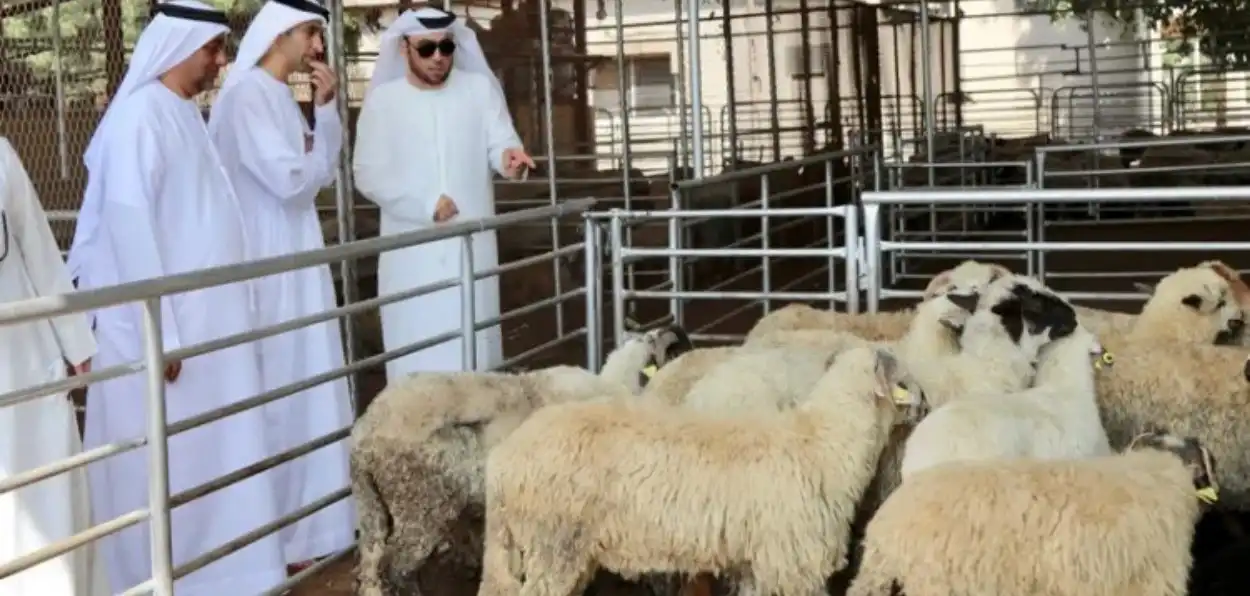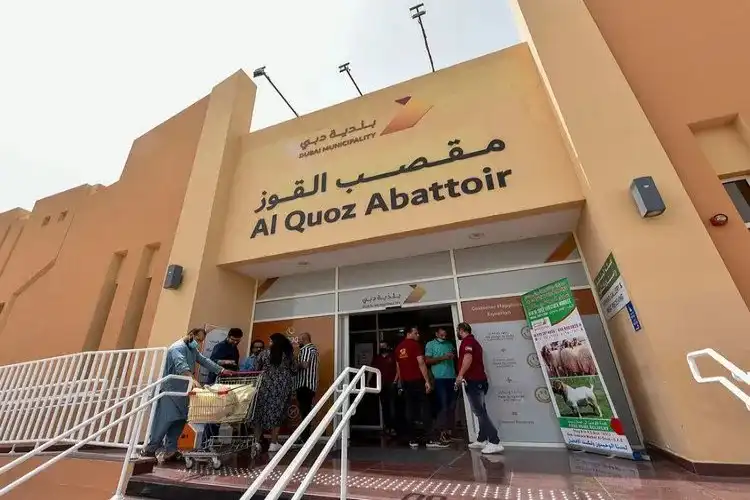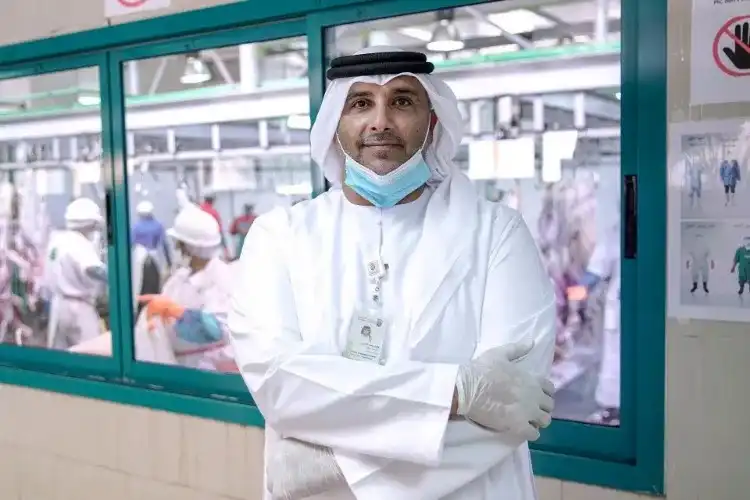
Mansooruddin Faridi
Across the world right from Saudi Arabia to the USA, 'Qurbani' – sacrificial slaughtering of an animal on Eid al-Zuha - is not only a religious duty of Muslims but also a collective social responsibility. However, in most countries it’s done systematically with special permits and inside dedicated slaughterhouses.
Be it in Saudi Arabia, the UAE, the USA, or Europe, the slaughtering of an animal for Qurbani is done on walled premises. However, in the Indian subcontinent i.e. India, Pakistan, and Bangladesh, the aspect of cleanliness – a tenet of Islam - is violated in the name of sacrifice without any remorse.
On the day of the festival and after, blood flows in the drains, remains of animals lay scattered around in the streets, severed heads and skins strewn around and the emanating nauseating stench is the common scene in Muslim-dominant localities in India.
This pollution is not limited to one day but the smell of the putrefying parts of the animal's body, and its blood fills the air many days after Eid al-Azha making a mockery of a sacred festival and religious sentiment.
How is it done in other countries? In Saudi Arabia, the citadel of Islam, no slaughtering is permitted in private places; it is compulsorily to be done in slaughterhouses. The Consumer Protection Association of the Saudi Royal Government has set up clean and sterile special altars for sacrifice.
In the USA, Qurbani is permitted only in registered slaughterhouses. In the UK, animals can only be slaughtered in accredited and registered slaughterhouses.
Saudi Arabia and the United Arab Emirates regularly announce rules on the occasion of Eid al-Azha that make the sacrifice a purely personal act without making others get upset about it or causing pollution of the soil, water, and air.
In Abu Dhabi, violation of this rule is punishable offense with heavy monetary fines and even jail terms. In the case of an expatriate, such an act can also lead to his deportation.
For these reasons, Eid ul-Azha is not resented by people of other faiths or Muslims who don’t want their festival to become all about filth, cruelty to animals, pollution detrimental to the health of the public.
 People outside an abbatoir in a UAE city
People outside an abbatoir in a UAE city
Besides, in a multicultural society like India, doing Qurbani discreetly can also mean showing sensitivity to others, many of whom are vegetarians and sensitive to and believe in animals' rights.
After the Covid-19 pandemic, the trend of 'online' Qurbani has become an option. One pays online and gets the meat of Qurbani delivered at home. If a person wants to distribute the meat to others, he can order so. Some organizations send the meat to the countries that need it the most.
The UAE has set an example in this; be it in Dubai, Abu Dhabi or Sharjah – all these cities with multistory buildings for housing and business, it’s mandatory to slaughter the animal in a slaughterhouse. Not only this, each animal market has been linked to a particular slaughterhouse.
Muslims offering a sacrifice are clear about which abattoir they are supposed to visit. This means there is no anarchy, panic or overcharding. One has to reach the abattoir at an allotted time to pick one’s share of the meat.
In Abu Dhabi, it is illegal to slaughter animals in residential premises or public places and the authorities keep a strict vigil to prevent such practice during Eid.
A committee of officers from the Ministry of Labour, Abu Dhabi Municipality, and Abu Dhabi Police patrol the city during Eid. If a butcher is caught slaughtering animals illegally, he is punished with a jail term. If an foreigner is caught in this illegal act he will have to pay 10,000 dirham to his sponsor and even face deportation. The owner of the animal will have to pay a fine of 2,000 dirham.
This time too, Abu Dhabi announced that after purchasing their sacrificial animals at the cattle market in Munazid, citizens would be able to transport them to the automated slaughterhouses at Al Mina, Al Watbah, Baniyas, and Al Shahma.
 An abbatoir worker in UAE
An abbatoir worker in UAE
One just can use a few mobile applications to get the meat delivered. These include 'My Sacrifice' and the Red Crescent Authority (Halal) app.
Dubai, a big business center that is known for its high standards of cleanliness of public places has four smart applications for requesting animal sacrifice. These are Al-Mawashi, Turki, Zabih-ul-Dar, and Shabab Al-Faraj apps under the supervision of the Ministry of Agriculture. The people of Dubai place their requests through these apps and the civic body ensures that clean and halal meat reaches them while sitting at home. The municipality also ensures that all sacrificial animals are medically examined before slaughter.
Dubai residents can also request animals from DM-approved charities such as Dar Al Bir Society, Dubai Charity Association, Red Crescent Authority, Al Ahsan Charity Association, Bait Al Khair Society, and UAE Food Bank.
Similarly, in Sharjah, famous as the center of cricket, rules are followed on the occasion of Eid-ul-Azha. Sharjah Municipality has said that Sharjah residents can get the meat delivered to their homes for slaughtering animals on Eid-ul-Adha at a "minimal charge".
All they had to do was go to the animal market, select the animal, make the payment, and register for home delivery. Thereafter, the market linked up with the central abattoir and facilitated the slaughter. Residents have been told that cash will not be accepted in markets and abattoirs. All payments will be made by debit or credit card -that means you can do great work from the comfort of your home.
What can be done in India?
Haji Syed Salman Chishti, the custodian of Dargah Ajmer Sharif and head of the Chishty Foundation, says he too is in favour of organizing the Qurbani in a scientific and more civilized way. However, he feels it will not be an easy thing to do. “The governments of the countries where this system is in place are directly involved in it. I have seen sacrifices from Türkiye to Maldives; these are not the result of individual effort but are seen as the responsibility of the governments.”
 Dr. Zaheer Qazi and Syed Salman Chisty
Dr. Zaheer Qazi and Syed Salman Chisty
Speaking with Awaz-The Voice, he says that sacrifice is not allowed in Maldives, the government has dedicated an island for it. The authorities have so systemized the ritual slaughtering that after the sacrifice, the remains are used for forming manure. No waste is dumped into the sea.
Salman Chishy said that any such arrangement is possible only when the government takes up the responsibility. The municipalities of every city should come forward with the proposal. The stage from sacrifice to distribution of meat is a matter of faith and belief and it will be the responsibility of the administration. The government has to make a plan.
Syed Salman Chishty says that cleanliness is important but individual efforts are not enough for this, major decisions and steps have to be taken in this regard. At present nongovernment organizations are active they are involved in the judicious distribution of the meat of the sacrificed animal – to the poor and the needy. They can also play an important role in the cleanliness.
ALSO READ: To follow the Prophet, use mosques for public welfare: H Abdur Raqeeb
Dr. Zaheer Qazi, president of Anjuman Islam in Mumbai, says that organized sacrifice is possible but not easy. NGOs can do this work more than the government. It can be tested in some big cities.
“We have launched an awareness campaign in this regard in Mumbai and its effect is also visible and it is expected that the situation will improve further next year. Talking to Aawz-The Voice, he said that organized management in Islamic countries is done by the government. It will be difficult in India, so we can take some help from the government under Swachh Bharat Abhiyan Muslim institutions and organizations will have to do this.”
